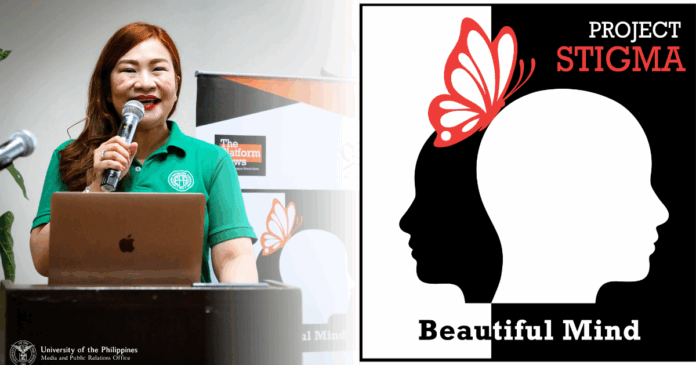“Dehumanization” was how Philippine Psychiatric Association President Dr. Joan Mae Perez-Rifareal, MD, FPPA, described the stigma surrounding mental health in her presentation, “The Invisible Chains: How Stigma Affects Lives and Help-Seeking,” during the launch of Project Stigma, spearheaded by The Platform News, earlier this month.
Rifareal started her lecture by defining stigma as a “mark of disgrace or disapproval,” or putting a label that leads to rejection or being shunned by others. In mental health, this affects the individual beyond their symptoms, with conditions like anxiety, depression, and stress worsening due to societal alienation and pressure.
She added by calling this the dehumanization of people suffering from mental health conditions.
“Yung mga tinatali, yung mga nakagapos,” Rifareal said, about a common mental health reaction by some family members where they treat the ill like animals.
These practices lead to harm, injustice, denial of treatment and management, and misled beliefs driven by fear, she added.
Rifareal also discussed that stigma comes in many forms. Public stigma can come from labeling and stereotypes, such as “nakakatakot,” “nangangagat,” and “nananakit,” and other common stereotypes that can affect social understanding of the issue. There is also self-stigma, or internalized negative views of the individual themselves, often leading to thoughts of “takot,” “hiya,” hopelessness, and low self-worth, which may result in them not seeking help.
Structural stigma, meanwhile, shows up in the form of discriminatory policies, programs, and laws.
Rifareal noted the real-world effects of stigma in mental health. This can range from psychological effects, denial of services, and even delayed recovery or lack of treatment altogether. Stigma can also discourage individuals from seeking help from healthcare professionals. The fear of being labeled with statements like “arte-arte lang ’yan” or “’ di naman ’yan totoo” is still prevalent in society and continues to prevent people from seeking the support they need.
All in all, Rifareal’s presentation emphasized that stigma is not merely a social construct. It has real-world, tangible consequences. This stigma, born from misunderstanding underlying medical conditions, can hold people back from reaching their full potential.



